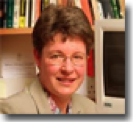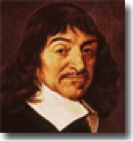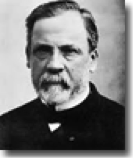
St. Bede's Catholic College

House and Year System
House Names
 Jocelyn Bell Burnell, née Bell (1943- ), British radio astronomer, co-discoverer of the pulsar.
Jocelyn Bell Burnell, née Bell (1943- ), British radio astronomer, co-discoverer of the pulsar.
Susan Jocelyn Bell was born in Belfast, on July 15, 1943, and educated at the University of Glasgow and the University of Cambridge, where she gained a doctorate in 1968. In 1967, while she was a research student of Antony Hewish, she noticed an unusual regularity in the records of signals picked up by the Cambridge radio telescope from astronomical sources. This led Hewish to postulate the existence of pulsating radio stars, subsequently known as pulsars. They are believed to be extremely dense, fast-spinning neutron stars. Bell Burnell was awarded the Herschel Medal of the Royal Astronomical Society in 1989, and was professor of physics at the Open University between 1991 and 2001. She was president of the Royal Astronomical Society from 2002 to 2004 and became a Fellow of the Royal Society in 2003. In 1999 Bell Burnell was made a CBE; in 2007 she was created a dame.
 Rene Descartes was a French mathematician, scientist and philosopher who has been called the father of modern philosophy.
Rene Descartes was a French mathematician, scientist and philosopher who has been called the father of modern philosophy.
He had a deep religious faith as a Catholic. At the age of 24 he had a dream, and felt the vocational call to seek to bring knowledge together in one system of thought. His system began by asking what could be known if all else were doubted - suggesting the famous 'I think therefore I am'. Actually, it is often forgotten that the next step for Descartes was to establish the near certainty of the existence of God - for only if God both exists and would not want us to be deceived by our experiences can we trust our senses and logical thought processes. God is, therefore, central to his whole philosophy. What he really wanted was to see his philosophy adopted as standard Catholic teaching. Rene Descartes and Francis Bacon (1561-1626) are generally regarded as the key figures in the development of scientific methodology.
Both had systems in which God was important, and both seem more devout than the average for their era.
 Louis J. Pasteur was a Catholic who was born and grew up in France.
Louis J. Pasteur was a Catholic who was born and grew up in France.
A well renowned scientist Louis was professor of physics at Dijon Lycee in 1848 and later became professor of chemistry at Strasbourg University. His main areas of interest included Physics and Bacteriology. He is best known for demonstrating how to prevent milk and wine from going sour, which came to be called pasteurization. His experiments confirmed the germ theory of disease, and he created the first vaccine for rabies. He became one of the founders of bacteriology. He also made many discoveries in the field of chemistry, most notably the asymmetry of crystals.
Mary Jane Seacole was a Jamaican-born nurse who helped soldiers during the Crimean War. 
Seacole had a good education, and developed an interest in medicine and nursing from her mother, who was a traditional healer. At the start of the Crimean War in 1853, she went to London to offer her services. Her application to join Florence Nightingale’s nursing team was refused. Many nurses turned down, whether because of their class background or, in this case, probably, ethnicity. Instead of giving up, Mary Seacole sailed to the Crimea at her own expense. She and Thomas Day (a relative in the shipping business) opened the British Hotel near Balaclava a few months later in 1855. Using it as a base, she would take mules laden with food, wine and medicines across country to the battlefield front lines at Redan, Sebastopol and Tchernaya. She obtained special passes, which allowed her to look after the wounded and dying on both sides. When she arrived back in London in 1856, Seacole was bankrupt from debts run up by soldiers at the British Hotel. The newspapers started a public campaign to raise money for her, backed by royalty and a grateful British Army. Mary Seacole converted to Catholicism late in life and is buried in St Mary’s Catholic cemetery, Kensal Green, London.
Pastoral Organisation
|
Year 7 |
Head of Year - Mrs R Carmichael |
|||
|
Two tutor groups |
Two tutor groups |
Two tutor groups |
Two tutor groups |
|
|
Year 8 |
Bell Burnell House
Two Tutor groups in Years 8, 9 & 10 and 11
Head of House Mr D Johnson |
Descartes House
Two Tutor groups in Years 8, 9, 10 & 11
Head of House Miss C Chennells |
Pasteur House
Two Tutor groups in Years 8, 9 & 10 and three in 11
Head of House Mrs B Sharp |
Seacole House
Two Tutor groups in Year 8, 9 & 10
Head of House Mrs T Turri |
|
Year 9 |
||||
|
Year 10 |
||||
|
Year 11 |
||||
|
Sixth Form |
Director of Sixth Form - Miss L Kirkbright and Mr N Sutton |
|||
